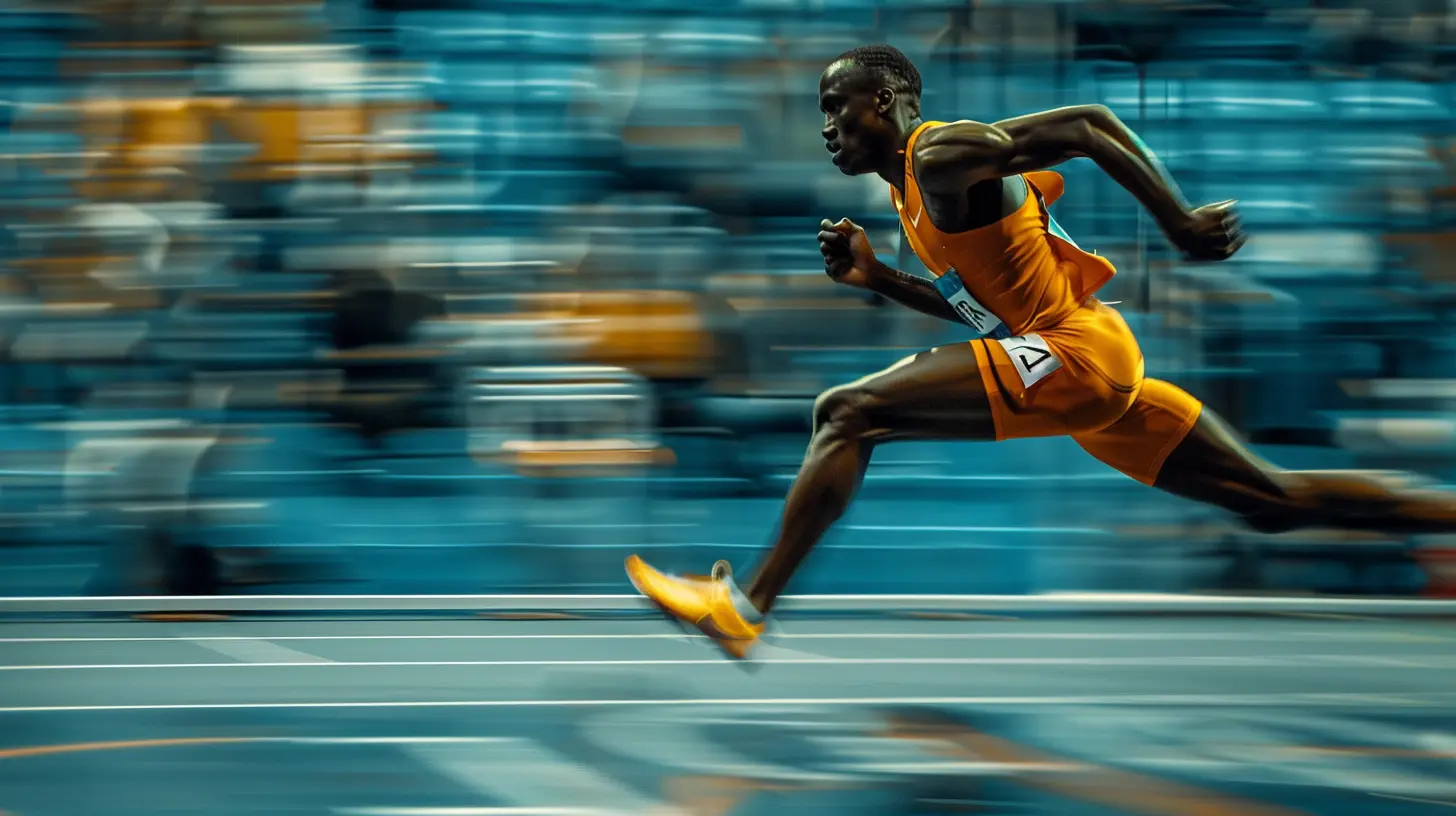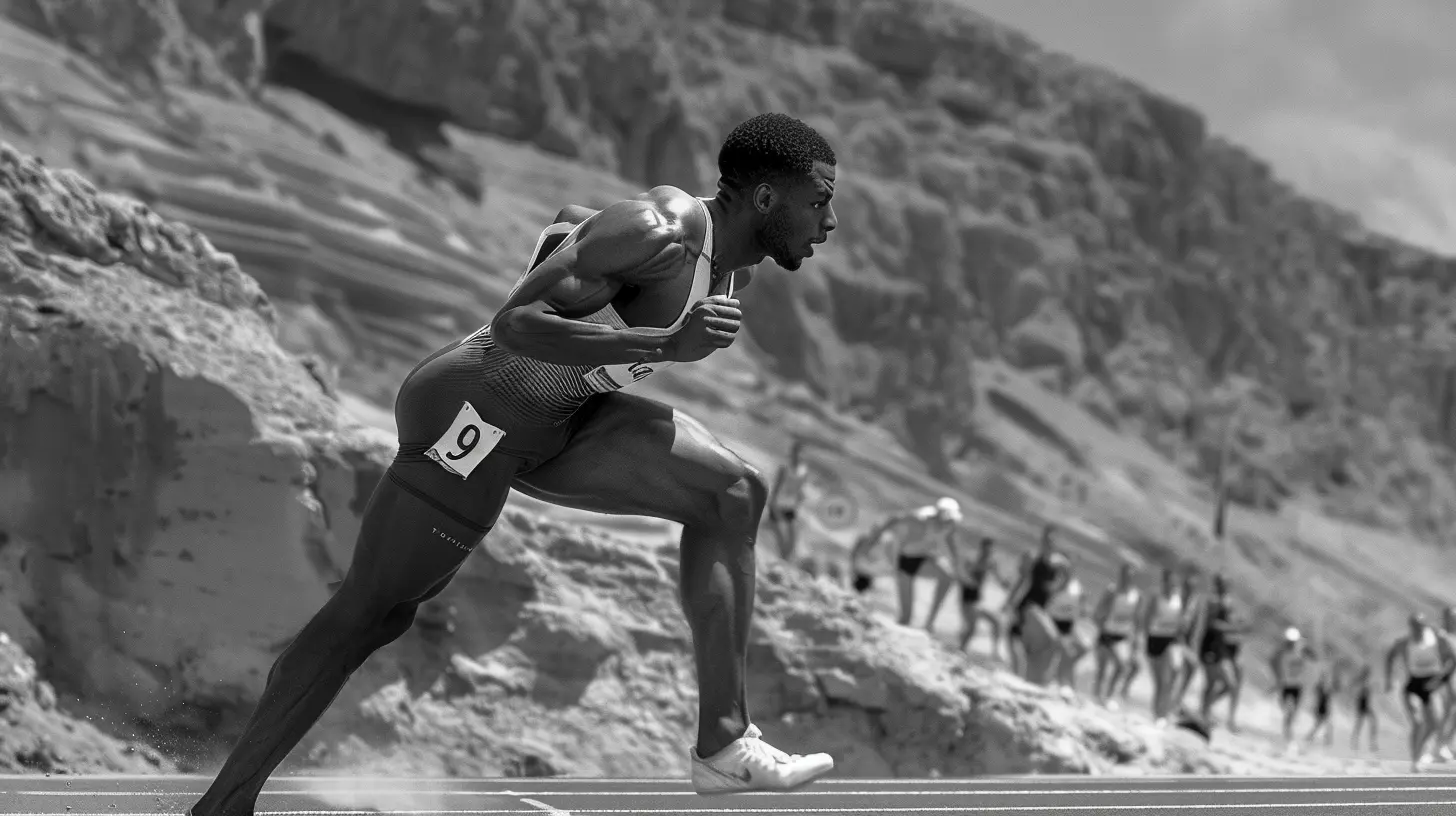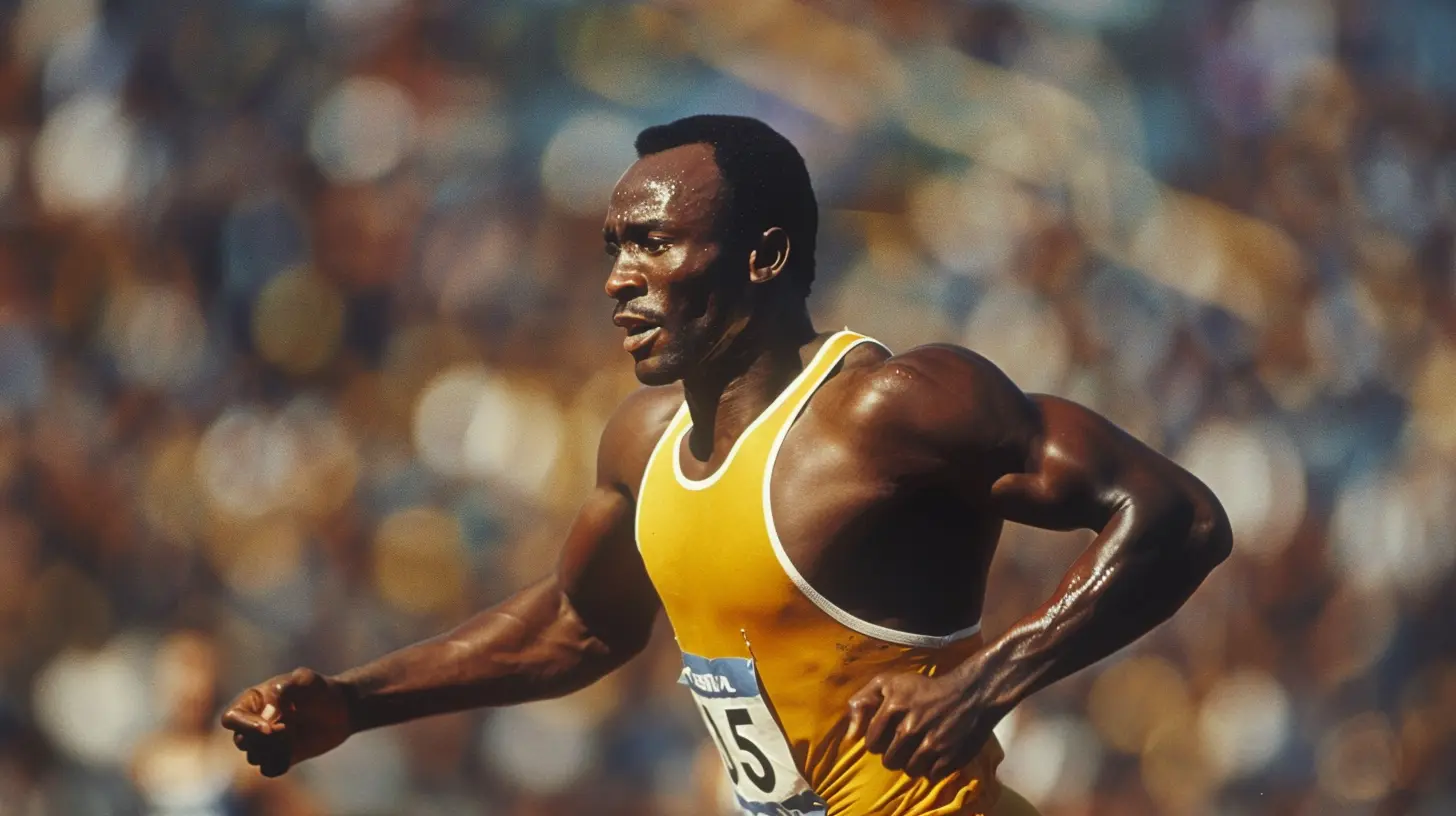The Role of Mental Toughness in Track and Field Events
26 June 2025
When people think of track and field, they often focus on physical strength, speed, and technique. Sure, sprinting like a bolt of lightning or launching a javelin halfway across the field looks impressive. But here’s the real secret behind all those jaw-dropping performances: mental toughness.
Yep, your mindset can make or break your game. Especially in track and field, where there’s no room to hide and every second (or even millisecond) counts, mental resilience is the glue that holds it all together.
So, let’s lace up, stretch out, and take a deep dive into how mental toughness plays a starring role in track and field events!
What Is Mental Toughness, Anyway?
Before we sprint ahead, let’s quickly break it down. Mental toughness isn’t just about “being strong” or “sucking it up.” It’s a mix of resilience, confidence, focus, and the ability to push through pain, setbacks, and pressure.Imagine standing at the start line for a 400-meter race. The crowd’s roaring, your heart’s pounding—and BOOM—the pressure could either consume you or catapult you. That’s where mental toughness steps in and says, “You've got this.”
Mental Toughness: The Invisible Muscle
You train your legs, your arms, and your core, right? Think of mental toughness as another muscle. And just like any muscle, it needs reps. Athletes have to build it day by day, failure by failure, victory by victory. It’s invisible but oh-so powerful.Unlike physical strength, mental grit isn't so easy to measure. No stopwatch or measuring tape will tell you how strong your mindset is—but believe me, it’s just as vital to success.
Why Track and Field Demands More Mental Grit Than You Think
Track and field is brutal. There’s no team to pass the ball to while you catch your breath. It’s just you, your lane, and the clock—or maybe the sandpit or the high jump bar. You’re exposed. There’s no hiding a bad day or a false start.What really makes this sport mentally taxing?
1. The Pressure of Precision
When every microsecond matters, you can't afford to zone out—even for a millisecond. One mental slip? That’s your race, your personal best, and maybe your medal—gone in a blur.2. Repetitive Training
Track and field athletes drill the same techniques over and over. It gets monotonous. Mentally staying dialed in through that endless cycle? That’s toughness.3. Setbacks and Injuries
You’ll pull a hamstring, hit a slump, or miss qualifications. Bouncing back takes more than physical rehab—it takes mental steel.4. Solo Focus
Unlike team sports where energy can be transferred, in track and field it's just YOU. All eyes on you. For some, that’s empowering. For others, terrifying. The difference? Mindset.
Building Mental Toughness: How Athletes Do It
Here’s the cool part: mental toughness isn’t some secret gift you’re born with. It’s a skill. And like hurdling or pole-vaulting, it can be trained.Visualization
Ever heard athletes talk about “seeing” their race before it happens? That’s visualization. It’s where the mind rehearses success before the body gets a chance to perform.Athletes imagine every moment—the crowd, the sound of the starting gun, every stride, every jump, every throw. So, when it's go-time, the mind says, “Been there, done that.”
Goal Setting
Big goals get you out of bed; small ones keep you driven through each practice. Champions break things down—today’s goal might be improving take-off by an inch. That little victory fuels the fire.Positive Self-Talk
You know that voice in your head? In track and field, you'd better make it your cheerleader, not your critic.Mental warriors use affirmations and mantras like:
- “I am strong.”
- “Every step gets me closer.”
- “I’ve trained for this.”
It’s like having your coach right inside your brain.
Staying Present
In events like the triple jump or decathlon, one bad performance can mess with your head big-time. But mental toughness means staying present. The best don’t dwell. They reset, refocus, and get right back on track—literally.Event-Specific Mental Challenges in Track & Field
Let’s break things down even more. Different disciplines within track and field throw different mental curveballs. Here's how mental toughness looks across the board:Sprinters
The margin for error is razor-thin. False starts, slow reactions—there’s no redemption. Sprinters must stay ice-cool at the blocks and explode at the right nanosecond.Patience and controlled aggression? That’s mental gold.
Middle & Long-Distance Runners
This is the real mental marathon. Pacing, strategy, resisting the urge to chase too early—it’s like a chess match played on the move.And let’s not forget the pain. Hitting the wall mid-race is brutal. Mental toughness keeps legs moving when they feel like jelly.
Jumpers (High Jump, Long Jump, Triple Jump)
Here, rhythm and timing are everything. Miss your approach by a hair and it’s all for nothing.Jumpers need serious confidence. One bad jump can rattle you. The mentally tough reset and attack the next one like nothing happened.
Throwers (Shot Put, Discus, Javelin)
It’s you vs. you. Every throw is a snapshot of control, power, and precision. Mental focus is key to channeling all that strength in the right direction.Plus, you only get a handful of chances. No room for self-doubt.
Hurdles
One misstep and you’re down. Hurdlers have to trust their rhythm, rely on muscle memory, and keep calm—even if they clip one mid-race.Real-Life Stories: Mental Grit In Action
Let’s talk legends.Usain Bolt didn’t just win because of his stride—he owned the moment. His confidence was contagious. When the pressure built, he smiled, kept cool, and delivered.
Wilma Rudolph, once told she’d never walk again, became an Olympic champion. Her mental strength was forged through struggle long before she hit the track.
Ashton Eaton, one of the greatest decathletes ever, had to master 10 events. Ten! Imagine the mental game that takes—juggling technique, focus, and fatigue over two intense days.
These athletes weren’t just fast; they were mentally fierce.
The Coach’s Role in Building Mental Toughness
Athletes don’t build mental grit alone. Coaches are the behind-the-scenes architects of toughness.The best ones:
- Push, but don’t break.
- Encourage growth through failure.
- Celebrate effort as much as outcomes.
- Teach athletes to control the controllables (like attitude, effort, and preparation).
A pep talk at the right time can flip doubt into belief.
How You Can Train Your Own Mental Game
Whether you’re an athlete or someone who just wants to build up their inner grit, these tips can help:- Journal how you feel after each workout or race. Reflecting builds awareness.
- Practice deep breathing before competitions. It calms nerves and sharpens focus.
- Watch your inner dialogue. If it’s nasty, flip it. Treat yourself like your favorite teammate.
- Sit with discomfort. Whether it’s a tough workout or a tough day, learn to lean in—it’s where growth happens.
The Joy of Mental Breakthroughs
You know what’s better than winning a medal? Beating your old self.When you push through a mental wall—say, finish that last rep, sprint through that final curve, or refuse to quit when everything in you says “stop”—it’s a high like no other.
That’s why we love this sport, isn’t it?
Because it teaches us that we’re capable of more than we thought.
Final Thoughts: Mind Over Matters Most
So next time you’re watching a runner blaze down the track or a pole-vaulter fly through the air, remember—yes, their bodies are machines, but their minds are the engines.Mental toughness isn’t just part of the game—it IS the game.
And in a sport like track and field, where everything can change in a blink, the edge often goes not to the fastest or strongest—but to the toughest.
So whether you’re gearing up for your next meet or just trying to push through a rough patch, don’t just train your body—train your brain. Because that’s where champions are made.
all images in this post were generated using AI tools
Category:
AthleticsAuthor:

Uziel Franco
Discussion
rate this article
1 comments
Uma McConkey
Mental toughness transcends physical ability, shaping athletes’ resilience and determination in competition.
July 12, 2025 at 4:17 AM

Uziel Franco
Thank you for your insightful comment! I completely agree—mental toughness plays a crucial role in an athlete's performance, often determining success beyond physical skill alone.


![A New Era: How [Player Name] is Shaping the Future of [Sport]](/pictures/blog/small/a-new-era-how-player-name-is-shaping-the-future-of-sport_1.webp)